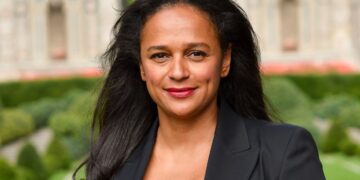
Dos Santos
Angolan woman billionaire, Dos Santos’ $734m asset frozen
The assets of former Africa’s wealthiest woman, Isabel dos Santos, totalling $734 million have been frozen.
This followed a ruling in a case brought against her by Angolan telecoms operator Unitel, in a legal dispute over loans extended to the Dutch company, Unitel International Holdings (UIH) in 2012 and 2013.
Dos Santos, then a director at Unitel during that period, had facilitated these loans to finance UIH’s acquisition of shares in various telecom companies.
Unitel, aiming to safeguard its interests, pursued a global freezing order to prevent dos Santos from moving her assets beyond the company’s jurisdiction.
A London judge ruled in favour of Unitel, granting the freezing order, according to Bloomberg, which first reported the news, the order encompasses dos Santos’ properties in London, Dubai, and Monaco, collectively valued at over $100 million.
Throughout the legal proceedings, Unitel argued that the loan terms were “uncommercial,” featuring disproportionately low interest rates, and were sought by dos Santos for her gain.
The judge’s decision emphasized dos Santos’ association with Unitel until November 2020, highlighting that the company is effectively controlled by the Angolan State.
In 2013, Forbes initially crowned Isabel Dos Santos as Africa’s wealthiest woman, with a net worth of $3 billion recognizing her substantial stakes in Angolan companies.
However, her financial standing underwent a dramatic shift in 2020 when she fell from grace to grass and was ousted from the list of the continent’s richest women.
This followed her arrest and accusations by Angolan authorities, alleging embezzlement and money laundering that reportedly cost the nation over $5 billion during her father’s 38-year rule.
In response, the authorities froze her assets, and Dos Santos vehemently denied the charges.
Dos Santos’ legal team contended that the lawsuit was a politically motivated campaign orchestrated at the behest of the Angolan government. They emphasized the need to view the case within the context of political rivalries.
